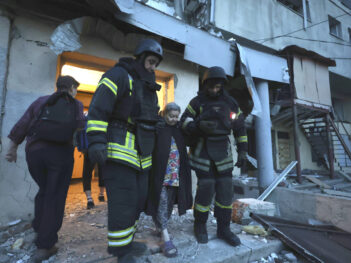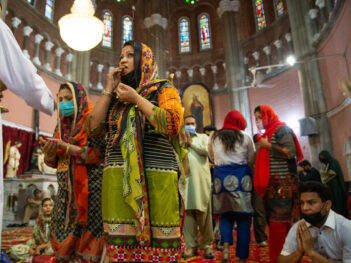

The Toll of Israel’s War on Iran
From Tehran to Los Angeles, Iranians are struggling to make sense of a war that claimed to free them while silencing their voices.

Cutting US Aid Jeopardizes the Lives of Ukrainian Civilians
Dodging Russian bombs is nothing new for Ukraine’s evacuators, teams of volunteers that crisscross the country to help civilians escape the approaching front line. But the financial bombshell dropped by Elon Musk’s chainsawing of USAID was impossible to avoid.

For the Uyghur Diaspora, the Taste of Home Brings Both Joy and Sorrow
Jewher Ilham is a 31-year-old Uyghur residing in the U.S., and the dishes she grew up eating continue to remind her of home. But her relationship with these flavors changed after her father was arrested back in China and later sentenced to life in prison on charges of “separatism.”

A Pact Between Al-Shabab and the Houthis Threatens Red Sea Shipping
A growing covert alliance between the Houthis in Yemen and al-Shabab in Somalia is creating a new axis of piracy, smuggling and asymmetric warfare along the Red Sea.

The Chinese Men Seeking Pakistani Christian Wives
Chinese men, who outnumber women of their generation, have been looking for brides abroad, including among Pakistan’s Christians. Treading the line between arranged marriage and human trafficking, these weddings have been facing increased scrutiny, but have persisted as ties between the countries deepen.
